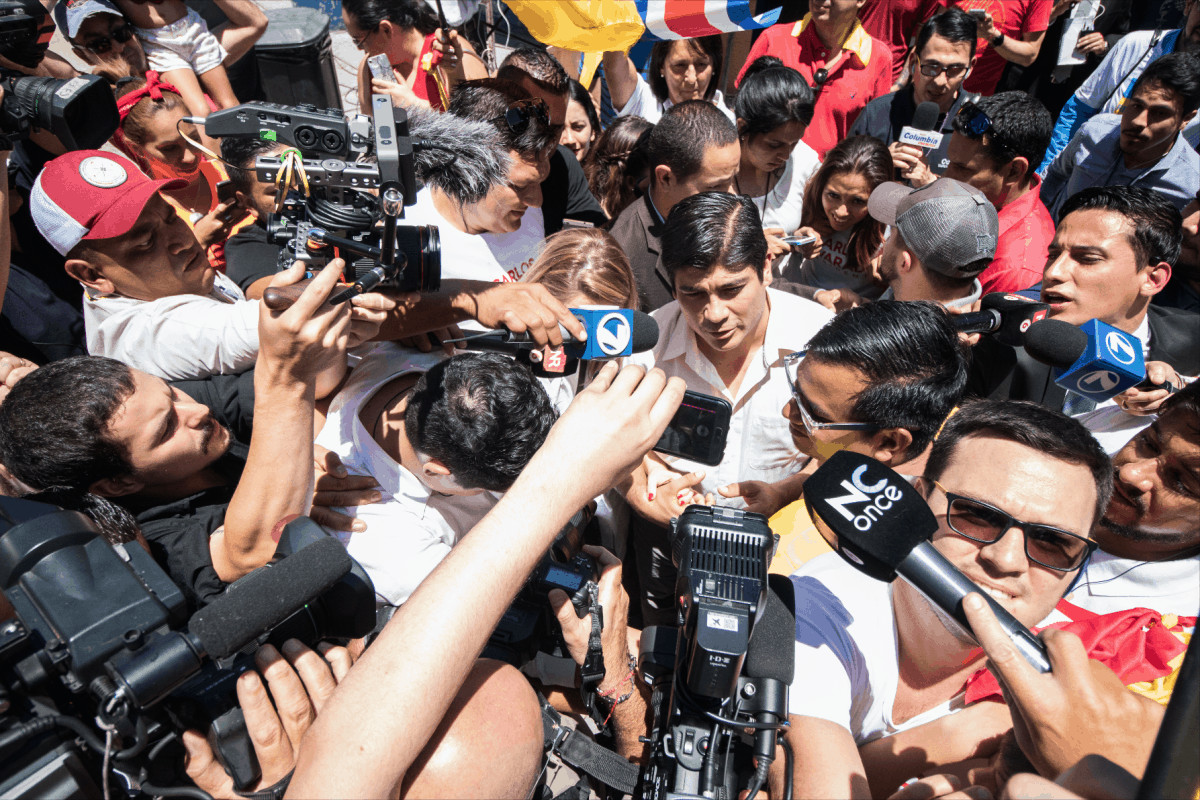According to the University of Costa Rica, intimidation, direct and indirect threats, espionage, insecurity, labor and sexual harassment, and forced exile are part of the daily situations faced by journalists working in Guatemala, Honduras, El Salvador, Nicaragua, and Costa Rica.
This information was revealed by the II Report on the State of Freedom of Expression and the Security of Journalistic Practice in Central America for the year 2023, recently prepared and published jointly by the Freedom of Expression and Right to Information Program of the University of Costa Rica (PROLEDI UCR), the Institute for Social Research (IIS UCR), and the Heinrich Böll Foundation.
This report is based on qualitative and quantitative analysis, as it included a review of the legislation of each country, judicial resolutions, and public policies, and a study of the news published with freedom of expression as a central theme, all within the period between September 2022 and September 2023.
Researchers conducted in-depth interviews with 10 women journalists to delve into the issue of gender violence in the midst of their work and applied a digital questionnaire aimed at 200 journalists in Central America, who shared the questions with other colleagues. In the end, they used the responses of 45 people who work in journalism, which is the same number as those on which the first report published in 2022 was based.
“It becomes essential to carry out this type of monitoring efforts regarding the situation of press freedom in Central America since it is a region that shows a serious deterioration of the guarantees for the exercise of freedom of expression and press and of democratic viability,” said M.Sc. Giselle Boza Solano, coordinator of Proledi UCR.
Serious restrictions on access to public and government-held information were identified through stigmatizing and violent discourse towards critical and independent media; official advertising is even used to reward or punish editorial lines, as the case may be.
Some of the findings described in this academic work regarding the conditions and risks of journalistic practice are that 17% of journalists in Central America work outside their country of origin due to exile, refuge, or political persecution. Additionally, it was discovered that the media do not have internal security protocols or supplies for the physical safety of journalists.
Regarding women journalists, the first analyzed were labor inequalities, followed by news coverage, then manifestations of violence against women journalists, states as perpetrators of gender-based violence, issues that generate digital violence, and the protection of the human rights of women journalists.
Among the recommendations put forward in this report is the idea of increasing and consolidating protection for journalists to guarantee their safety and physical integrity and to protect the independence of the media, especially the public media, which should be independent of the government in power so that they can address the various news events from a public interest perspective.






